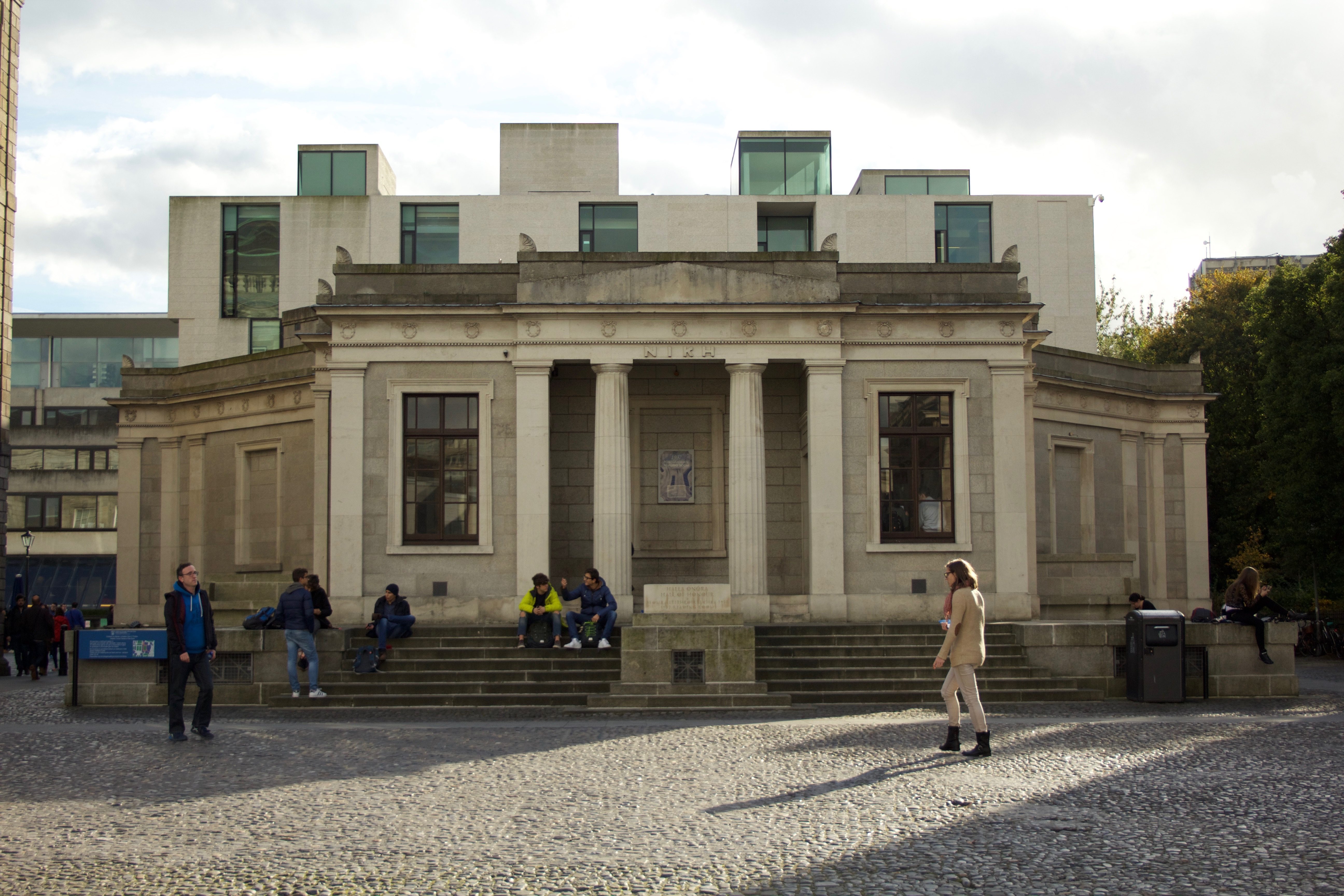Graduate Students’ Union (GSU) President Gisèle Scanlon is to run for re-election against former GSU Executive member John Tighe.
Incumbent Vice President Abhisweta Bhattarcharjee is running unopposed to retain her role.
Candidates and their campaign managers were briefed today by the GSU electoral commission, chaired by the union’s Oversight Officer David Donohue.
The electoral commission confirmed the three candidates in a press statement today.
Hustings will take place on June 4th, with voting to take place from June 9th to 11th. Results will be announced on June 12th.
Only the positions of president and vice president will be elected as sabbatical officers, despite the union voting to make the position of research officer a sabbatical role – the sabbatical elections for the 2022/23 academic year will include the research officer role.
Scanlon won last year’s election, after serving as Vice President the previous year. Her presidency this year has been riddled with controversy, including difficulties running class representative elections, a public spat with the TCD PhD Workers’ Rights Group – a lobby group in Trinity – over a survey it ran with the union, as well as attempts to separate entirely from Trinity College Dublin Students’ Union and two EGMs mired in controversy.
The controversies culminated in April with a petition to remove her as president. Bhattarcharjee, running for her second term as Vice President has faced similar backlash from postgraduates, who have also called for her removal.
During last year’s election Scanlon leaned heavily on her experience in the union, and said that she wanted to create a “continuity of care”.
“Everything I’ve learned as a vice president I can put towards the presidency”, she said at the GSU’s hustings last year.
Bhattarcharjee similarly leaned heavily on welfare issues during last year’s election. During the GSU hustings, she said: “I want to make sure that every member of the postgraduate community feels safe and looked after.” Referencing her experience as a counsellor, as well as her time working with Scanlon, Bhattacharjee insisted that the welfare of students was top of her priorities.
John Tighe previously ran for president of TCDSU in 2012. Describing himself as a “student activist” at the time, he supported a more “democratic” Trinity.
In an interview with The University Times at the time, he said that the “apolitical nature of campaigns around campus needs to stop the cutting of education services from different departments as a result of the austerity measures being put in place by this government and the last one”.
Tighe was also chair of the electoral commission last year. When announcing the results of the election, he said that the turnout last year was a “testament to the work of the Electoral Commission and the three campaigns”.
The union has had difficulties running elections and votes this year. At a chaotic EGM held last month, the union used a voting system that did not verify whether those using it were actually entitled to vote. Several attendees reported that they were unable to vote, while others said that the voting link allowed users to vote several times.
In response to concerns that anyone could vote on the motions, Bhattacharjee, who was chairing the meeting, said that there should be no one else in attendance at the meeting apart from members of the GSU.
Among the motions brought forward at the EGM was a proposal to formally divest from Trinity College Students’ Union (TCDSU). However, the proposal was shot down after a second vote.
When voting ended for the original motion to divest, it appeared that it had lost by two votes, but Bhattacharjee said that it was a tie and as chair had the casting vote.
She later said that it had come to her attention that the vote was “not a clear one” and that members would vote again. By then, there were around 255 people on the Zoom call, down from around over 500 at the start of the meeting.
The following week, the GSU sent an email to postgraduates saying that it would stand by amendments and motions passed at the EGM.
The email clarified the motions and amendments had passed during the EGM, stating that at a meeting of the majority of the union’s executive committee, “oversight” deemed the motions and amendments passed as “correct”.
The union also courted controversy in the running of its class representative elections last year. The voting system used – called Qualtrics – allowed students who had access to a link to vote anonymously in the elections as many times as they wished.
The GSU will use Mi-Voice as its voting system for the sabbatical elections. The union said the use of Mi-Voice “is to ensure that the election is completely secure and fair in these unprecedented times. Mi-Voice was used last year by the GSU and we were thrilled to be working with them again”.







